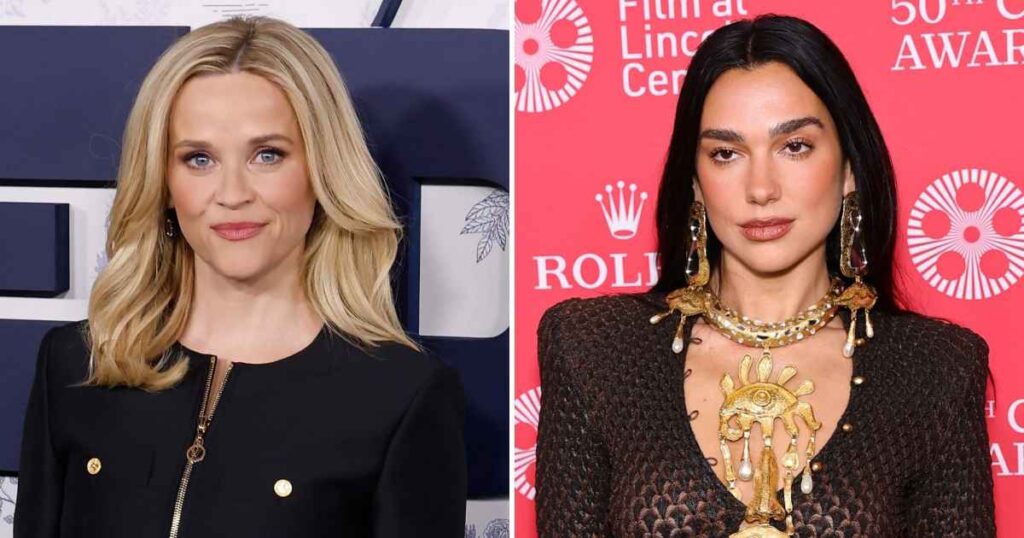Are there too many celebrity book clubs to go around? Short answer: No! When it comes to getting people psyched about reading, especially now, we say the more the merrier.
It’s easy to hate on celebs jumping into the book-club fold, and occasionally our first response is an eye roll: We get it, you can read! Maybe it seems opportunistic, trying to grab a slice of that sweet #BookTok action. (The hashtag has more than 100 billion hits on the app.) But right now, when the number of Americans who read for pleasure has dropped by 40 percent, according to a new study, we’re slowing our (eye) rolls and instead saying bring them on! In fact, start even more book clubs!
Reese Witherspoon is the biggest success story in the most recent wave of club promoters. She launched the female-fiction-focused Reese’s Book Club in 2017 with Eleanor Oliphant Is Completely Fine by Gail Honeyman, and she’s had more than 110 picks since. The New York Times dubbed her the Queen of the Book Club in May 2024, reporting that the previous year, her selections accounted for a staggering 2 million-plus in print sales. Witherspoon had two goals in starting the club, she said: to simplify choices for busy readers and “bring the book club out of your grandma’s living room.” And she succeeded, big-time.
Other famous folks, like Today’s Jenna Bush Hager (Read With Jenna) and Emma Roberts (Belletrist), have followed in Witherspoon’s footsteps. And all three have amplified the impact and reach of their clubs beyond the written page: Witherspoon and Roberts have adapted several of their picks for screen (like Taylor Jenkins Reid’s Daisy Jones & the Six and Delia Owens’ Where the Crawdads Sing for Witherspoon, Carola Lovering’s Tell Me Lies for Roberts). Bush Hager partnered with the Random House Publishing Group to launch the Thousand Voices Books media company, which aims to highlight emerging voices in the publishing industry.
Things have gotten a tad more headscratchy with the addition of stars we don’t immediately associate with “books” or “reading,” like Dua Lipa (2023’s Service95 Book Club), Kaia Gerber (2024’s Library Science) and Dakota Johnson (2024’s TeaTime Book Club). Each has its own aesthetic and vibe: Gerber’s site, for example, is very French-girl-smoking by-the-Seine; Lipa’s is a bit Sassy magazine updated for the new millennium. Johnson’s site is all business in an intentional-seeming way, stripped down and bare bones with the feeling of a Substack bookshop. In short, there is a book club for every kind of reader around.
If this is the first time you’re hearing of some of these clubs — or you’re a bit skeptical — you’re not alone. I am one of Lipa’s biggest fans, but I don’t know that I need to see her posing with a book once a month. And, of course, there’s the whiff of opportunism that’s hard to shake: Is getting in on the book-club business just a way to hop on a profitable bandwagon and add more intellectual heft to a pretty poppy résumé? How can you tell the difference between a book-pushing A-lister doing performative work and those invested in lifting up authors who might otherwise go unread in an oversaturated market? A better question: Who cares? And also, what’s the downside? (Johnson, for example, operates through Bookshop.org, so she’s driving business to small booksellers, which is commendable regardless of her motivation.)
These women aren’t any less suited to launching a book club than those who came before them, like Emma Watson (Our Shared Shelf, 2016) and Queen Camilla (The Queen’s Reading Room, 2021), or after (Jimmy Fallon’s 2024 Fallon Book Club, anyone?).
Romance author Elsie Silver praised #BookTok to Us earlier this year, saying that it’s created “an anticipation” for new releases like never before. One could argue that the celebrity stamp of approval via a book club does the same thing on an even bigger scale. Which means that if a rec from someone famous gets you to hit the books, you’ll hear no complaints from me.
Read the full article here

